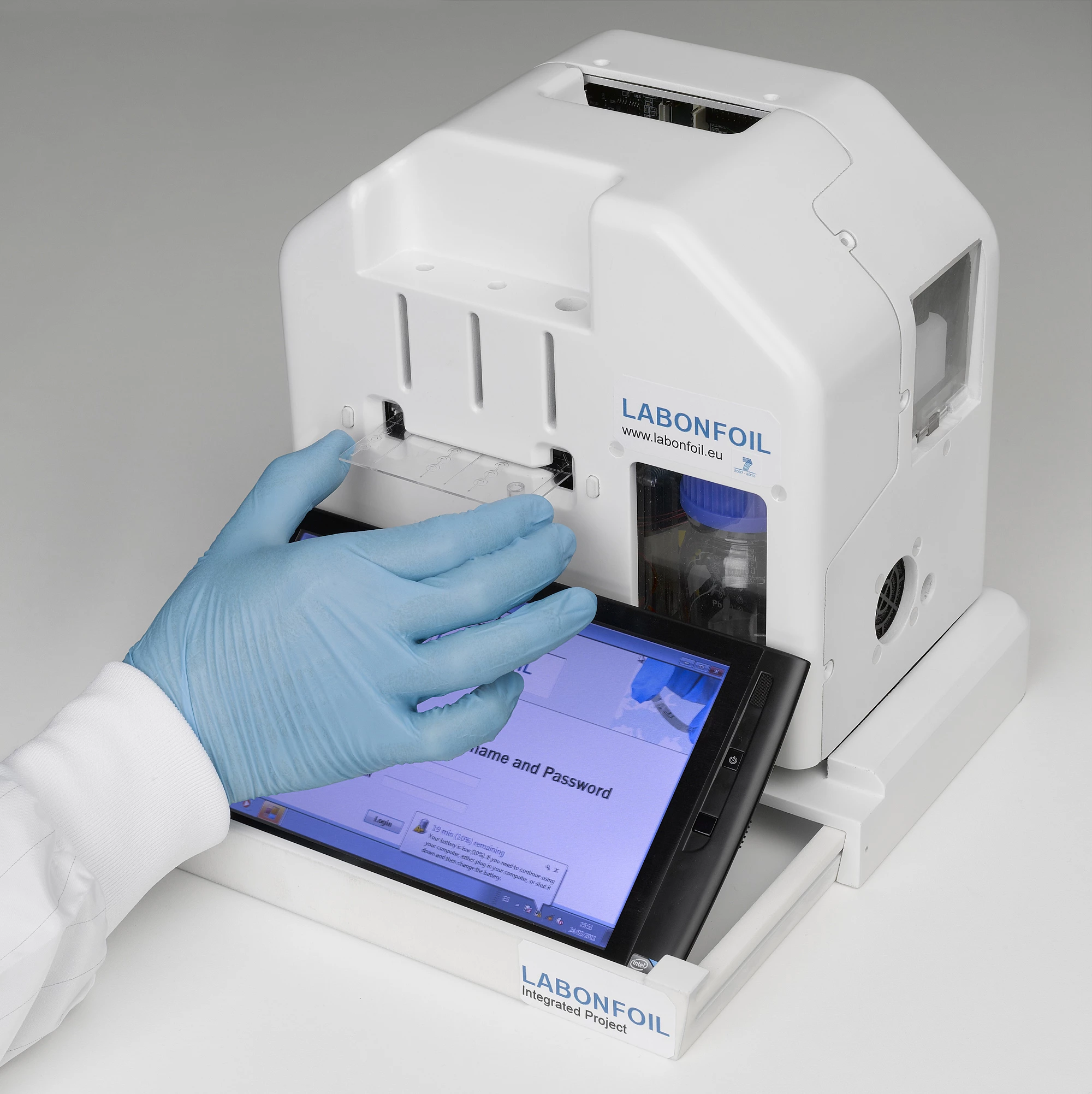A European project coordinated by Ikerlan and CIC microGUNE is developing a James Bond-style automated laboratory called "LABoratory skin patches and smart cards based ON FOILs and compatible with a smartphone" (LABONFOIL). Using lab-on-a-chip technology and smart patches to detect a wide variety of substances and diagnose diseases, the goal of the project is to create a cheap, portable laboratory that can interact with smart devices.
The product of 13 partners in 8 countries, the LABONFOIL is designed to be simple, sensitive, fast, and “ultra-low-cost.” It’s an extremely flexible system based on smart cards and patches that connect to a common portable reader either directly or over a wireless network. Each card and patch is a lab-on-a-chip, using foils instead of conventional wafers to keep down costs. According to the developers, these can detect chemicals and biochemical markers and the common reader can send the data to a computer, tablet, or smartphone, as well as making it immediately available to distant experts and other interested parties.

The current version of LABONFOIL uses three smart cards and a skin patch tailored to react to defined substances. The skin patch can detect cocaine molecules in human sweat in real time, while one of the cards can identify a specific protein in a few drops of blood as an inexpensive, noninvasive way of diagnosing colon cancer. The second card can detect bacteria or viruses, such as campylobacter or salmonella on farms or at food processing plants. And the third card can measure phytoplankton levels in seawater as a means of monitoring pollution.
The developers say that extensive testing has proven the robustness and reliability of the system. The Spanish company POC MicroSOLUTIONS will market the device next year, and the Irish company Biosensia and DTU Nanotech in Denmark are working to further develop the technology and its applications.
Source: Cordis








